Frozen shoulder or adhesive capsulitis is a condition which affects the ability to move the shoulder usually only occurring on one side.
For approximately one person in five, the problem spreads to the other shoulder.
The medical term adhesive capsulitis literally describes the condition where adhesive means sticky and capsulitis meaning inflammation of the joint capsule.
It is thought that a lot of the symptoms are due to the capsule becoming inflamed and sticking, making the whole joint stiff and difficult to move. This is not the same as arthritis, and no other joints are usually affected.
There are three phases that a Frozen shoulder will pass through; a freezing phase, a stiff phase and a thawing phase where the pain gradually reduces and mobility increases.
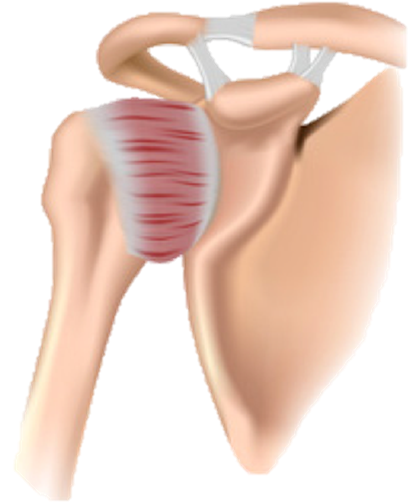
Symptoms
Painful (freezing) phase – The freezing phase of frozen shoulder symptoms start with a gradual onset of aching in the shoulder. The pain will often become more widespread and much worse at night making lying on the affected side difficult. This phase can last between 2 and 9 months.
Stiffening (frozen) phase – During the second phase, the shoulder joint will begin to stiffen up. The shoulder is likely to be painful still and normal day to day tasks such as dressing or carrying bags become more difficult. Shoulder muscles may start to waste away through lack of use and this may be noticeable. Symptoms during the frozen phase can last between 4 and 12 months.
Thawing phase – During the thawing phase, frozen shoulder symptoms begin to improve. The range of movement will increase and there is a gradual decrease in pain although pain may re-appear as stiffness eases for a time. The thawing phase can last 5 to 12 months.
Cause
It is not known exactly what causes a frozen shoulder, however, it is thought that the lining of the joint (the capsule) becomes inflamed, which causes scar tissue to form.
This leaves less room for the humerus or arm bone to move, hence restricting the movement of the joint.
The increased prevalence among diabetics (particularly insulin-dependent diabetics) may be due to glucose molecules sticking to the collagen fibres in the joint capsule, which causes stiffness.
For this reason, diabetics are more likely to have both shoulders affected. Hormonal changes may be responsible for the higher incidence among women, particularly due to the increased prevalence around the menopausal period.
Some studies have shown that poor posture, particularly rounded shoulders, can cause shortening of one of the ligaments of the shoulder, which may also contribute to this condition. Also, prolonged immobility (such as after a fracture) may cause this condition to develop.
Treatment
Frozen shoulder is usually managed conservatively, with surgery as a last measure. Exercises which help maintain mobility and flexibility in the shoulder will be prescribed. Anti-inflammatory medication to reduce inflammation in the shoulder joint. Or a direct injection of steroid medication into the joint will also reduce inflammation.



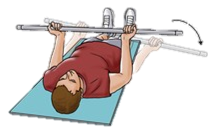
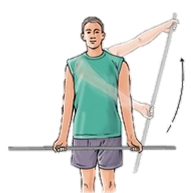
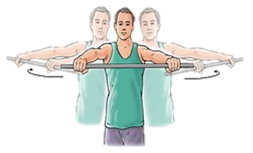
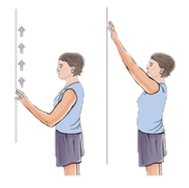


Contact Me
Let's chat!
Need more information? Send me an email or drop me a line. I don’t bite!
- Charlotte@rehabontheroad.co.uk
- 07971448719
